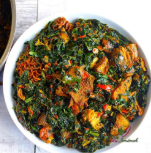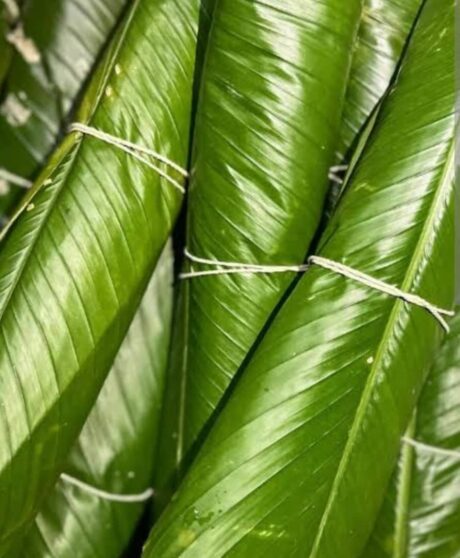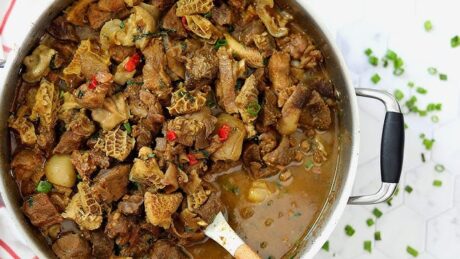Okasi (Afang Leaves) – per pack (Subscriber price only)
Description
Okasi, also called Afang leaves, is a popular leafy vegetable native to the Efik and Ibibio people of Southern Nigeria. It is a tough, slightly bitter leaf often sliced thinly and combined with waterleaf to balance its flavor and texture. Afang leaves are traditionally used in thick, hearty soups and are well-known for their rich, earthy taste.
Sources
Akwa Ibom State, Cross River State, and parts of Rivers State.
Health benefits
-
Rich in dietary fiber – aids digestion and supports gut health.
-
High in protein for a leafy vegetable – supports muscle repair and growth.
-
Contains essential minerals like calcium and magnesium – promotes strong bones and teeth.
-
Rich in antioxidants – helps protect the body from oxidative stress.
-
Boosts iron levels – supports red blood cell production and prevents anemia.
Common soups you can use it for
-
Afang Soup (Efik/Ibibio specialty)
-
Edikang Ikong Soup
-
Vegetable Okra Soup
-
Mixed Vegetable Soup with assorted meats and fish
TETE (Local Green Spinach) – per pack (Subscriber price only)
Description
Tete, also called African spinach or amaranth leaves, is native to Africa and Asia. It has been cultivated in Nigeria for centuries and is a staple green vegetable in many traditional dishes.
Sources
Oyo, Ogun
Health benefits
-
Rich in iron – helps prevent anemia and boost energy.
-
High in vitamins A and C – supports vision, immunity, and healthy skin.
-
Good source of dietary fiber – aids digestion and supports gut health.
-
Contains calcium – important for strong bones and teeth.
-
Low in calories – great for weight management.
Common soups you can use it for
-
Efo Riro (Yoruba vegetable stew)
-
Efo Elegusi (vegetable with melon seed soup)
-
Ogbono Soup (as an added leafy green)
-
Okra Soup
-
Mixed Vegetable Stew
MoinMoin Leaves – per pack -(Subscriber price only)
Description
Moi Moi leaf comes from the plant Thaumatococcus daniellii, known for its broad, flexible, and aromatic leaves. These leaves are not eaten but are used as natural wrappers for steaming dishes like Moi Moi (bean pudding) and some local rice delicacies. Cooking with Moi Moi leaves gives food a distinct earthy aroma and flavor compared to using nylon or foil.
Sources
Oyo, Ogun, Ondo, and Ekiti, as well as parts of the South-South.
Health benefits (indirect — since the leaves are not consumed directly)
-
Adds a natural aroma to food without artificial flavoring.
-
Eco-friendly and biodegradable compared to synthetic wraps.
-
Helps retain food nutrients during steaming due to its natural sealing effect.
-
The plant itself has medicinal uses in traditional medicine (e.g., the fruits are used as natural sweeteners).
Common soups or dishes you can use it for
-
Moi Moi (bean pudding)
-
Ekuru (steamed mashed beans)
-
Some local steamed rice dishes








